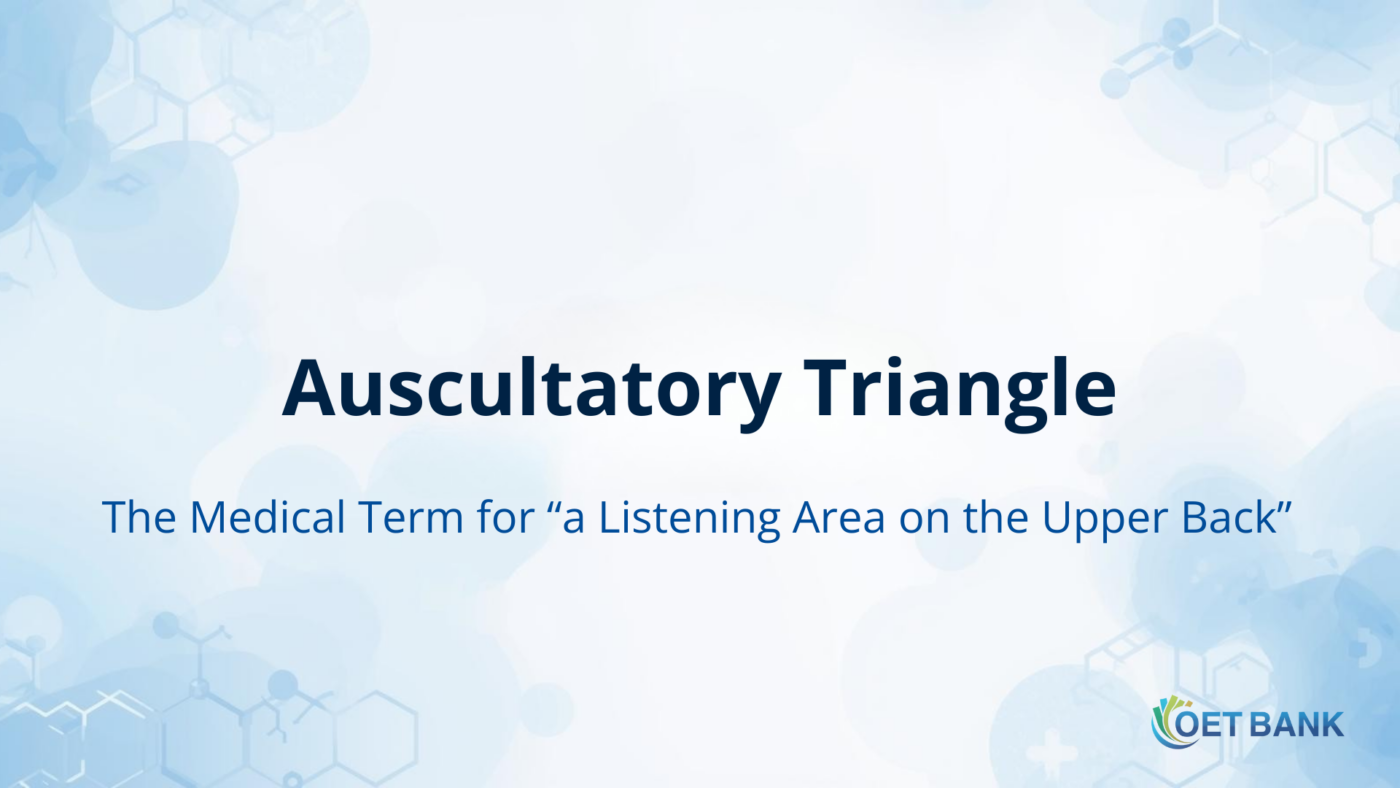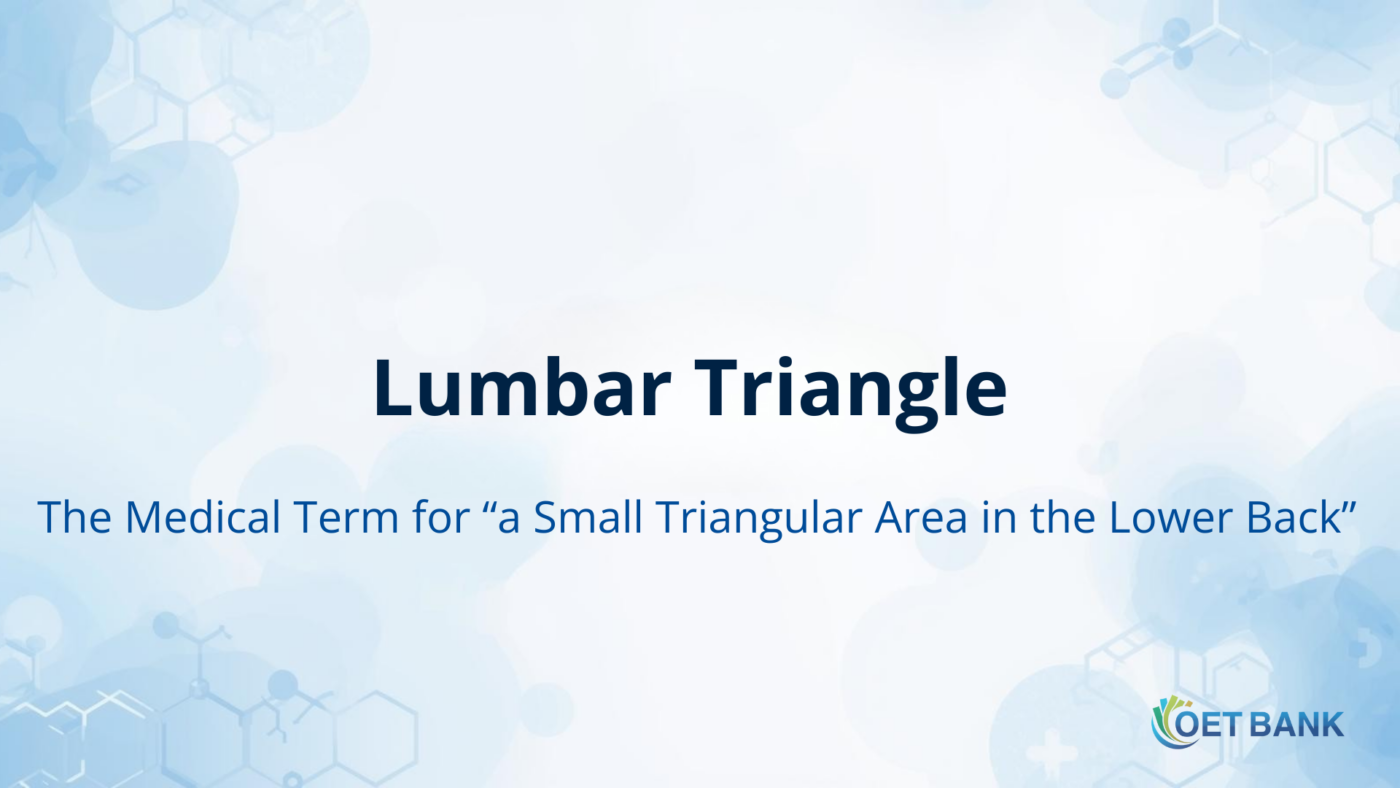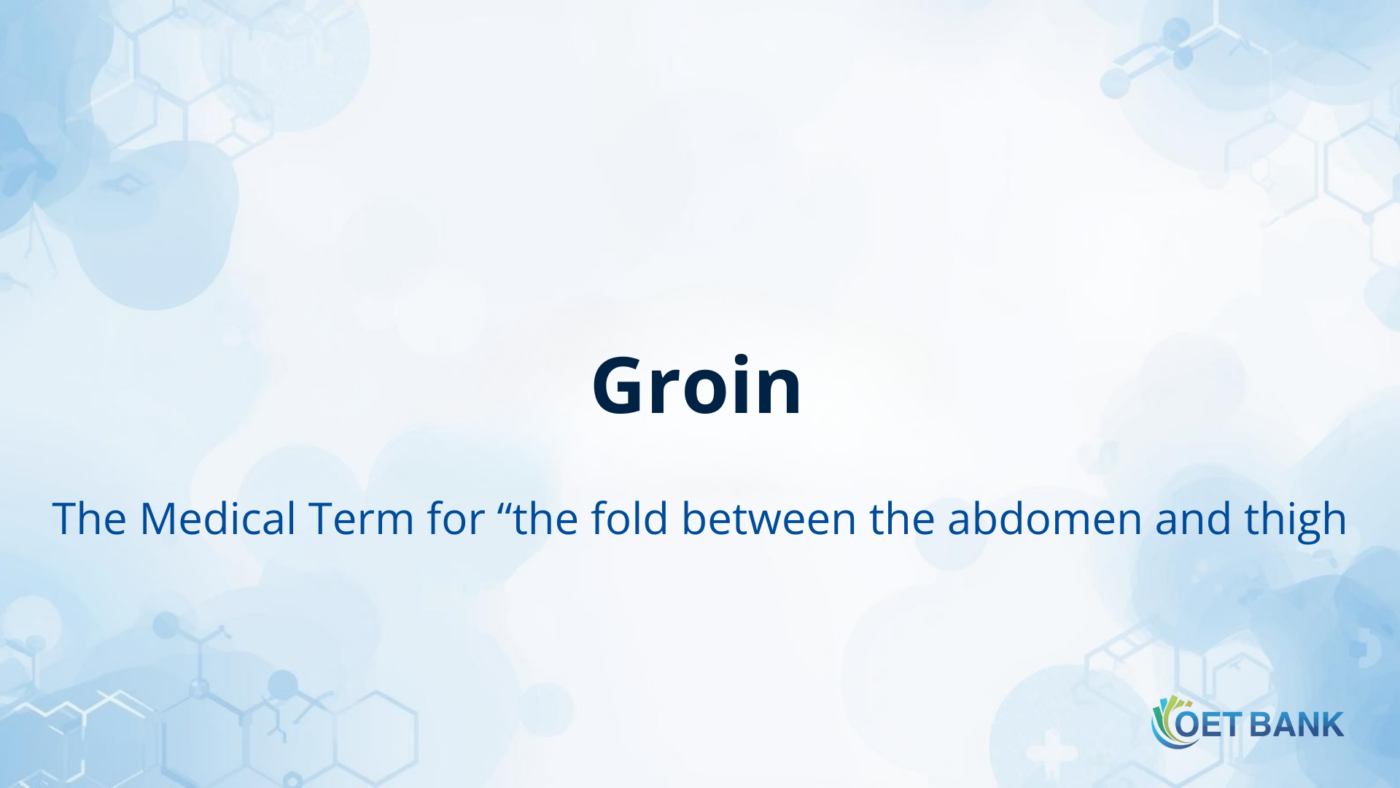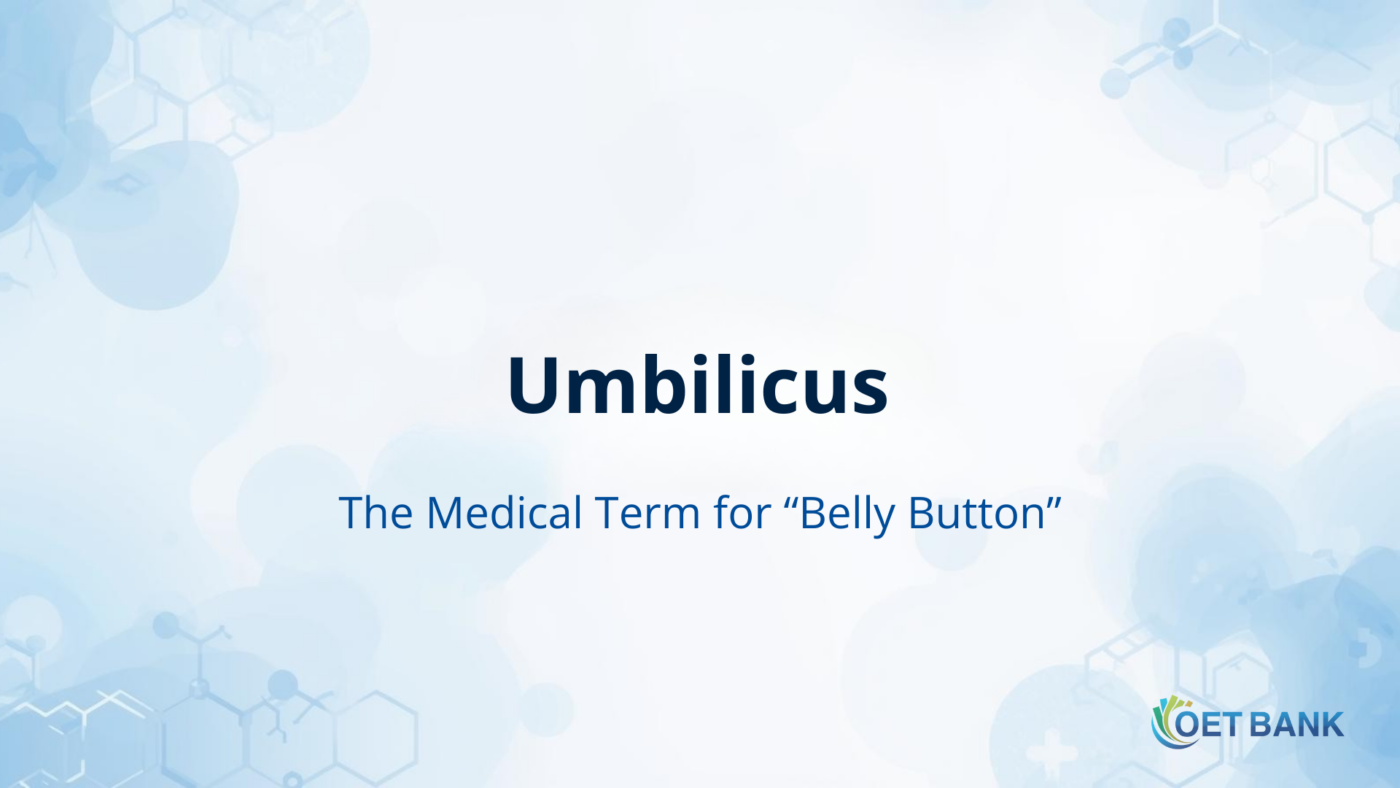The OET Reading section is designed to assess information-processing skills essential to clinical work, rather than simple language comprehension. While general understanding is necessary, the focus goes further. Candidates are expected to demonstrate the ability to These abilities closely reflect how doctors and nurses engage with written information in real healthcare settings, where time pressure […]
Category Archives: OET Vocabulary
👁 What Does “Intergluteal Cleft” Mean? Intergluteal cleft literally means the groove between the buttocks. The word comes from Latin: inter meaning between, and gluteus meaning buttock, while cleft comes from Old English meaning a split or groove. In medical English, this term is used to describe the central skin fold separating the two buttocks, […]
👁 What Does “Buttocks” Mean? Buttocks refers to the rounded, fleshy area at the back of the hips that people sit on. The word comes from Old English buttoc, meaning “end” or “bottom.” In modern medical English, buttocks is treated as a plural noun, even when referring to the area as a whole. In healthcare […]
👁 What Does “Auscultatory Triangle” Mean? The auscultatory triangle is a small triangular area on the upper back where the chest wall is relatively thin. The term comes from Latin: auscultare, meaning to listen, combined with triangle, referring to its three-sided shape. In medicine, this term is used mainly in anatomy and physical examination contexts. […]
👁 What Does “Lumbar Triangle” Mean? The lumbar triangle refers to a small triangular area in the lower back. The word lumbar comes from the Latin lumbus, meaning lower back, while triangle simply describes its shape. In anatomy, this term is used to describe a defined region rather than a muscle or organ. 🔍 Clinical […]
👁 What Does “Infrascapular Region” Mean? The infrascapular region literally means the area below the scapula, or shoulder blade. The term comes from Latin: infra meaning below, and scapula meaning shoulder blade. In medicine, this term is used to describe a specific part of the upper back, rather than a vague location like “lower shoulder […]
👁 What Does “Iliac Crest” Mean? The iliac crest is the curved, upper edge of the hip bone that you can often feel just under the skin. The word iliac comes from the Latin ilium, meaning hip, while crest refers to a ridge or raised edge.Put together, iliac crest literally means the ridge of the […]
👁 What Does “Groin” Mean? The groin refers to the fold where the lower abdomen meets the upper thigh. The word comes from Middle English and Old French roots (groyne, meaning “fold” or “angle”), describing the natural crease in this region. In medicine, the term appears frequently because many important anatomical structures pass through this […]
👁 What Does “Umbilicus” Mean? The word umbilicus literally means the center point of the abdomen, commonly known as the belly button. It comes from the Latin word umbilicus, meaning navel or central point. In anatomy and clinical communication, umbilicus is used instead of “belly button” because it sounds professional and avoids informal language. 🔍 […]
👁 What Does “Loin” Mean? Loin refers to the area of the lower back on either side of the spine, between the ribs and the hips, usually overlying the kidneys. The term comes from Latin lumbus, meaning “the lower back or flank.” In modern medical English, loin is commonly used in clinical descriptions, especially when […]











